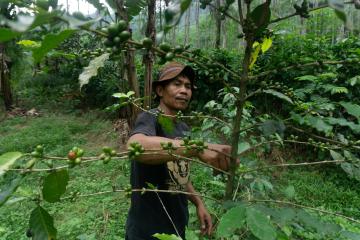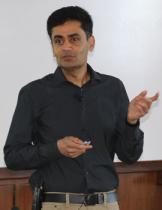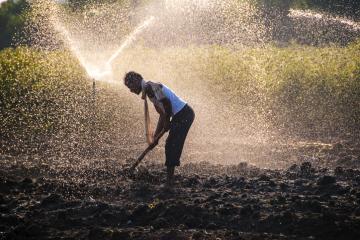
2024 Annual Letter from the Global Executive Director
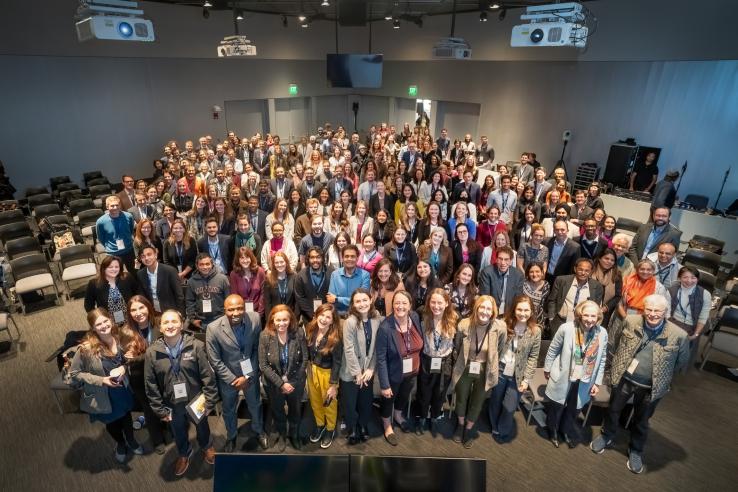
Celebrating our twentieth anniversary around the world over the past year was a welcome opportunity to take stock of J-PAL’s journey so far—a journey that saw us expand our research network from 8 to 900 researchers, learn from 2,200 randomized evaluations across 96 countries, and reach 600 million lives with policy informed by rigorous research.
Here in Cambridge, we commemorated our twenty years by bringing together a diverse group of partners to listen to those engaging directly with evidence-informed policies and share ideas for future directions.
Among many, we heard from community organizers at Pratham about their efforts to implement Teaching at the Right Level in India and from US-based anti-poverty activists about the challenges of measuring poverty in the US and advocating for the wellbeing of children. Participants then helped map out a vision for the future, where conversations revolved around new uses of AI to accelerate development, recent innovations in RCT methods, and J-PAL’s priorities for the next decade.
You can watch a short recap of the event here, and see videos of full sessions here.
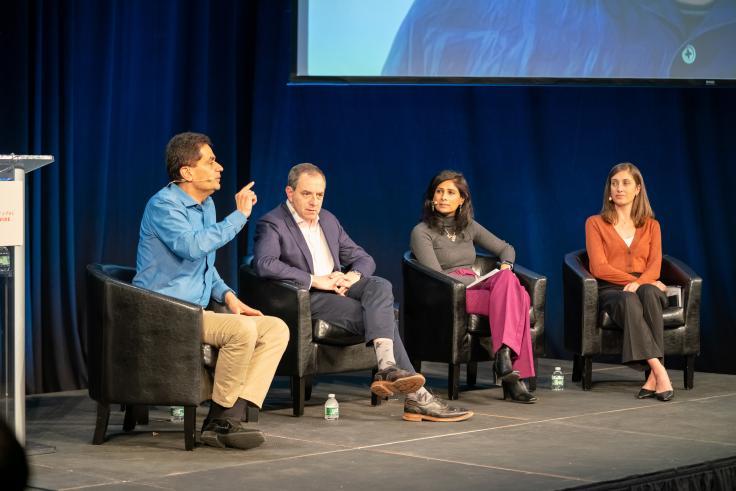
And our regional offices hosted a series of inspiring events to mark the occasion, including J-PAL Europe, J-PAL North America, J-PAL South Asia, and J-PAL Southeast Asia.
This culminated in a creative J-PAL museum exhibit in which J-PAL South Asia curated a fantastic showcase highlighting the partners, the people, and the science behind two decades of impact—see photos on our 20th page here.
Looking ahead
As a global community, we’re facing a seemingly endless list of existential threats: climate change, war, forced migration, pandemics, dangerous political and ideological rifts, the list goes on. These add crushing weight to the persistent crises of widespread poverty and growing inequality. But every day, governments, MDBs, NGOs, companies, investors, and donors are making critical decisions on what programs to design, fund, and implement to fight these challenges.
We’ve made important progress over the last twenty years: Many of these decisions are based on rigorous evidence of what works—but many still are not. Instead of despairing at the size and stickiness of our problems, we must proactively collaborate on designing innovative solutions, rigorously testing them, and then working carefully to scale them up.
Our goals for 2024 reflect this mission, from leveraging AI for social good to expanding private sector partnerships to generating new cost-effectiveness analyses. See our priorities for the year ahead and stay tuned for updates as these efforts progress in 2024.
What I’m proud of
Over the past year, our worldwide team and our ever-expanding network of researchers pushed the boundaries of what’s possible to achieve through rigorous research, timely policy engagement, and tailored capacity building.
Research from the J-PAL network uncovered novel findings that will shape future policies, including cash benchmarking to measure cost-effectiveness in Rwanda, using machine learning to increase women’s agency in India, and increasing use of administrative data in RCTs to reduce their cost and improve efficiency in Indonesia.
We launched the Displaced Livelihoods Initiative and the Learning for All Initiative, concentrating resources around critical and urgent policy questions related to migration and displacement, as well as children’s foundational literacy and numeracy and holistic skills.
And we increased efforts to diversify our research network by opening up self-nominations for Invited Researchers and expanding J-PAL Scholars Programs, leading to increased access to research funding for more researchers, crowding in subject-matter expertise to J-PAL initiatives, and helping researchers strengthen their research portfolio and advance their careers.
We established Air and Water Labs in Egypt, India, and South Africa with Community Jameel and partner governments to increase access to evidence and spark collaboration with researchers to innovate, test, and scale effective clean air and water policies. And the new UM6P-J-PAL Agricultural Lab for Africa will design and fund rigorous impact evaluations of private sector programs that improve small-scale farmers’ food security, productivity, and profitability.
These and existing embedded labs, including the Egypt Impact Lab, the Morocco Employment Lab, and a policy lab for social inclusion in Spain, build capacity for partners to institutionalize adoption of evidence-informed decision-making at scale.
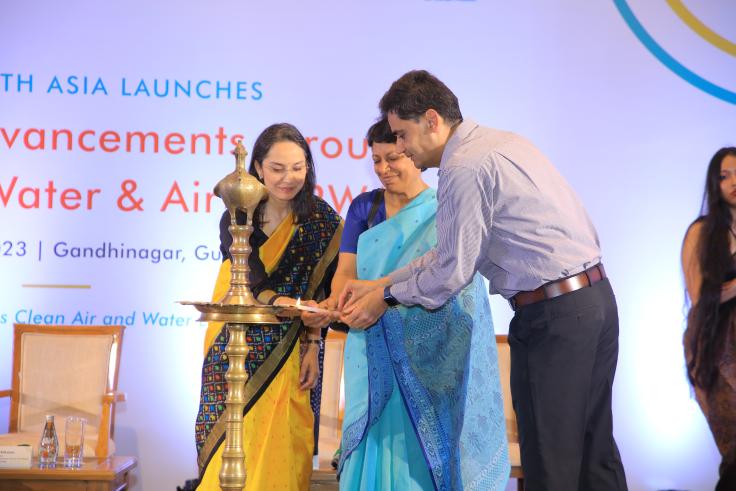
Photo: J-PAL South Asia
Our education and training efforts continue to strengthen capacity worldwide, work we advanced this year by launching a new Public Policy track in the Data, Economics, and Design of Policy MicroMasters program and conducting over sixty tailored trainings and incubators for governments, nonprofits, and international organizations.
We also launched a new and improved—and incredibly rich—research resources section of our website, aggregating learnings from two decades of conducting randomized evaluations to help researchers, policymakers, practitioners, and students conduct high-quality, policy-relevant, and ethical research.
These are just a few examples of what we accomplished in 2023. Read more about our work over the past year on the J-PAL blog and browse past posts to see what you might have missed.
Helping people adapt to the realities of climate change
Our work at the nexus of climate change and poverty alleviation continues to grow through the King Climate Action Initiative (K-CAI), with foundational support from King Philanthropies, and is increasingly important as climate impacts disproportionately affect people experiencing poverty.
In the past three years, K-CAI has funded 13 scaling projects and 32 randomized evaluations across 21 countries. Over the last year, funded project teams have provided actionable insights for policy partners in Bangladesh, India, Niger, and the United States who are implementing and scaling evidence-informed climate policies. These scaling stories speak to the power of randomized evaluations to contribute to the fight against climate change and poverty, and to the importance of scaling grants to translate research into large-scale action that improves people’s lives.
As I mentioned above, we also expanded K-CAI’s work by launching the Air and Water Labs in partnership with Community Jameel, led by J-PAL Africa, Middle East and North Africa, and South Asia with their government partners. The labs will co-generate evidence-informed solutions to address the most pressing air and water challenges in India, Egypt, and the City of Cape Town. And K-CAI’s work is continuing to grow, with more examples of evidence-informed climate policy and partnerships expected in the next year.
Thank you
These achievements and ambitious goals for the future would not be possible without the commitment of our friends and partners. In my many travels this past year, I have been continually awed and inspired by the dedication of our funders, implementers, policy partners, researchers, staff, alumni, and program participants whose brilliant work sets an example for all of us. I look forward to continuing these conversations in the new year.
Read the 2023-24 edition of "Improving Lives Through Evidence."
Related Content

J-PAL South Asia and Community Jameel reaffirm their commitment to increase clean air and water access with the launch of SARWA
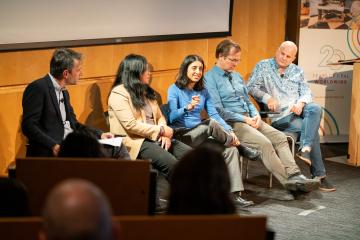
The next decade of RCT research: What can we learn from recent innovations in methods?
